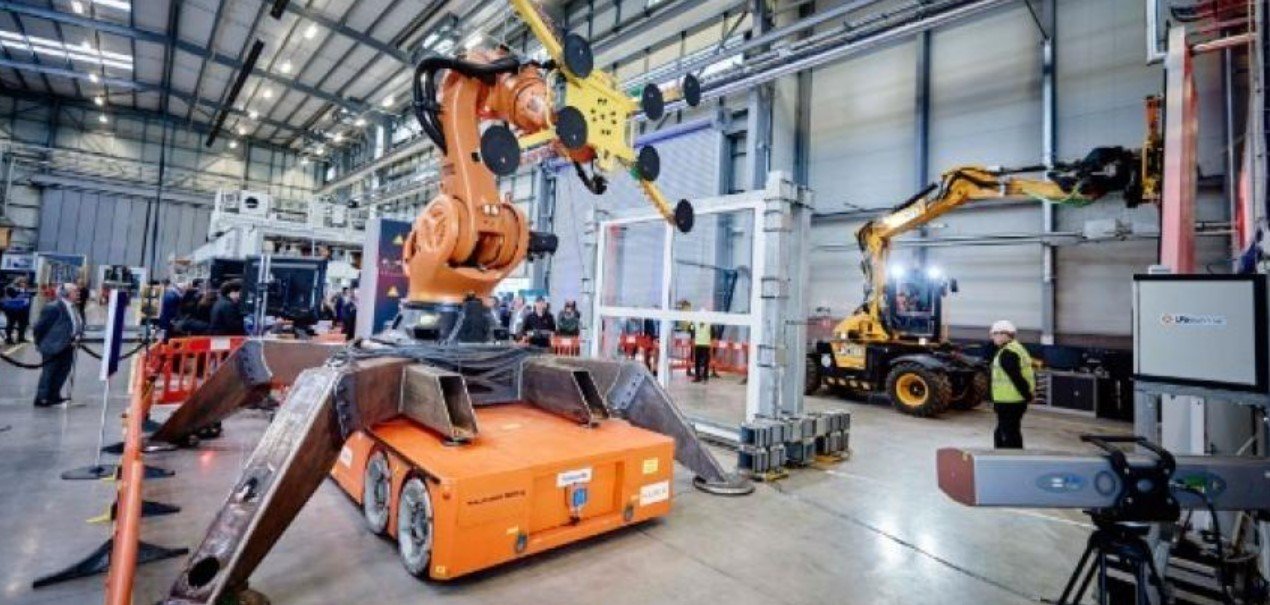The Manufacturing Technology Centre (MTC) has unveiled a new Sustainable Materials Hub aimed at advancing net-zero product innovation. This initiative is set to revolutionize the field of additive manufacturing by incorporating sustainable practices and materials. The hub will feature state-of-the-art polymer and ceramic additive manufacturing machines, alongside material reprocessing equipment to recycle waste materials into reusable feedstocks. This development marks a significant step towards achieving end-to-end circularity in manufacturing processes, aligning with global sustainability goals.
Pioneering Sustainable Additive Manufacturing
The MTC’s new hub is a groundbreaking initiative that promises to transform the landscape of additive manufacturing. By integrating advanced polymer and ceramic additive manufacturing machines, the hub will facilitate the production of net-zero products. This approach not only reduces waste but also enhances the efficiency of manufacturing processes. The inclusion of material reprocessing equipment ensures that waste materials are recycled and reused, contributing to a circular economy.

The hub’s capabilities extend to the use of high-performance polymers and ceramics, such as Alumina, Silicon Nitride, and Aluminium Nitride. These materials are crucial for producing durable and sustainable products. The investment in cutting-edge equipment, including the Lithoz CeraFab S65 and the Carbon M3 machine, underscores the MTC’s commitment to sustainability and innovation.
Collaboration with industry stakeholders is a key aspect of this initiative. The MTC is working with partners like Ai Build and Weir to develop and scale up the use of sustainable materials in manufacturing. This collaborative approach ensures that the benefits of the hub are widely shared across the industry, paving the way for a more sustainable future.
Advancing Research and Development
The Sustainable Materials Hub is not just about manufacturing; it is also a center for research and development. The hub provides a platform for exploring new materials and processes that can further enhance the sustainability of additive manufacturing. Researchers at the MTC will have access to state-of-the-art equipment and facilities, enabling them to push the boundaries of what is possible in sustainable manufacturing.
One of the key research areas is the development of bio-based and recyclable materials. These materials have the potential to significantly reduce the environmental impact of manufacturing processes. By focusing on renewable resources, the MTC aims to create a more sustainable supply chain for additive manufacturing.
The hub also supports the development of new manufacturing techniques that can improve the efficiency and sustainability of production processes. This includes exploring new methods for material reprocessing and recycling, as well as developing innovative approaches to product design and manufacturing.
Driving Industry-Wide Change
The impact of the Sustainable Materials Hub extends beyond the MTC. By setting a new standard for sustainable manufacturing, the hub is driving industry-wide change. Companies across various sectors, including aerospace, defense, and energy, can benefit from the innovations developed at the hub. This widespread adoption of sustainable practices is essential for achieving global sustainability goals.
The MTC’s investment in the hub is a testament to its commitment to leading the way in sustainable manufacturing. By providing a model for other organizations to follow, the MTC is helping to create a more sustainable future for the manufacturing industry. The hub’s focus on collaboration and innovation ensures that the benefits of sustainable manufacturing are realized across the industry.
In conclusion, the launch of the Sustainable Materials Hub by the Manufacturing Technology Centre marks a significant milestone in the journey towards net-zero product innovation. By integrating advanced manufacturing technologies with sustainable practices, the hub is setting a new standard for the industry. This initiative not only enhances the efficiency and sustainability of manufacturing processes but also drives industry-wide change, paving the way for a more sustainable future.



































